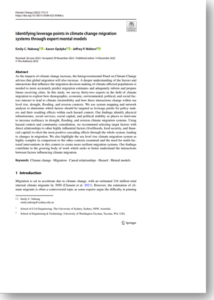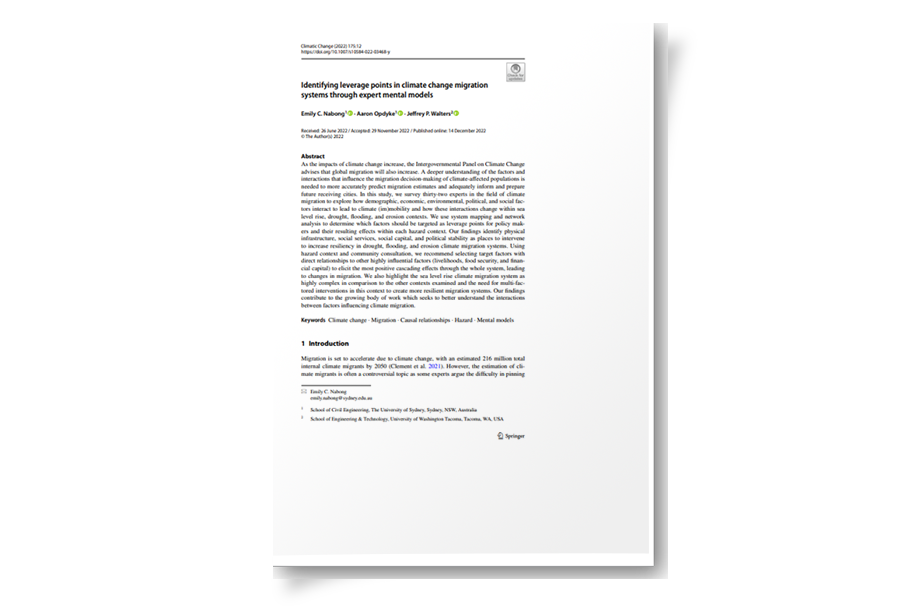Abstract
As the impacts of climate change increase, the Intergovernmental Panel on Climate Change advises that global migration will also increase. A deeper understanding of the factors and interactions that influence the migration decision-making of climate-affected populations is needed to more accurately predict migration estimates and adequately inform and prepare future receiving cities. In this study, we survey thirty-two experts in the field of climate migration to explore how demographic, economic, environmental, political, and social factors interact to lead to climate (im)mobility and how these interactions change within sea level rise, drought, flooding, and erosion contexts. We use system mapping and network analysis to determine which factors should be targeted as leverage points for policy makers and their resulting effects within each hazard context. Our findings identify physical infrastructure, social services, social capital, and political stability as places to intervene to increase resiliency in drought, flooding, and erosion climate migration systems. Using hazard context and community consultation, we recommend selecting target factors with direct relationships to other highly influential factors (livelihoods, food security, and financial capital) to elicit the most positive cascading effects through the whole system, leading to changes in migration. We also highlight the sea level rise climate migration system as highly complex in comparison to the other contexts examined and the need for multi-factored interventions in this context to create more resilient migration systems. Our findings contribute to the growing body of work which seeks to better understand the interactions between factors influencing climate migration.
Potential Industry Impact
- Physical infrastructure, social services, social capital, and political stability are identified as intervention points when looking to increase resiliency in drought, flooding, and erosion climate migration systems.
- A focus on sea level rise climate migration system as highly complex and interconnected where further research is needed to determine best strategies for intervention.

Authors:
Emily C. Nabong, Aaron Opdyke & Jeffrey P. Walters
Journal:
Climatic Change volume 175, 12 (2022)
Read:
https://doi.org/10.1007/s10584-022-03468-y


